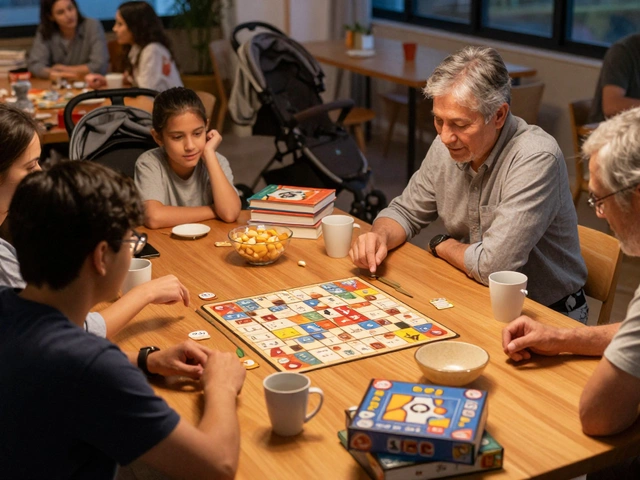Social Skills: Real Ways to Connect, Communicate and Grow
Ever feel stuck in a conversation or unsure how to make new friends? You’re not alone. Social skills are the everyday tools that let us share ideas, build trust, and work together. The good news? They’re not a mystery – you can practice them in the places you already go.
Why Social Skills Matter
Good communication helps you land a job, lead a team, and feel comfortable in a crowd. When you listen well and speak clearly, others respond positively, and you end up in more rewarding relationships. At Holy Family Catholic Church in Patchway, we see how simple acts – greeting a neighbour, helping at a fundraiser, or joining a prayer group – turn strangers into a supportive community.
Research shows kids who join after‑school clubs develop stronger teamwork and problem‑solving abilities. Adults who volunteer report higher confidence and lower stress. The pattern is clear: real‑world interaction builds the muscle you need to talk, listen, and collaborate.
Everyday Places to Practice
1. School or Youth Clubs – Whether it’s a sports team, a robotics club, or the Big 6 youth organizations, you’re forced to share ideas, negotiate roles, and celebrate wins together. Start by volunteering for a small task like setting up equipment; it’s an easy way to meet people and show you’re reliable.
2. Community Outreach Programs – Programs like the ‘Primary Aims of Community Outreach’ or local charity runs let you talk to a wide range of people. Ask questions, offer a helping hand, and you’ll quickly pick up the art of reading body language and adjusting your tone.
3. Church Activities – Our parish hosts weekly coffee mornings, youth groups, and fundraising events. Jump in as a greeter or a stall holder. You’ll practice greeting, small‑talk, and teamwork while supporting a cause you care about.
4. Volunteering at Charities – From organizing a charity walk to helping at a homeless shelter, you encounter diverse situations that test patience and empathy. Use each interaction to hone active listening – repeat back what someone says to confirm you understood.
5. Simple Everyday Situations – The bus stop, the grocery line, or a local park are perfect low‑stakes practice fields. Make eye contact, smile, and comment on the weather or a shared experience. Small gestures add up to big confidence gains.
Want a quick routine? Try the “3‑minute rule”: spend at least three minutes each day initiating a conversation with someone you don’t know well. It could be a neighbour, a fellow parishioner, or a teammate. Track what worked – a funny comment, a genuine compliment – and repeat it.
Remember, social skills improve with feedback. After a group activity, ask a trusted friend or leader what they noticed about your listening or speaking style. Use their tips to tweak your approach next time.
Building social skills isn’t a sprint; it’s a series of tiny steps taken in real settings. By joining clubs, volunteering, and engaging with our church community, you create a safe space to practice, fail, and grow. So the next time you hear about a new youth club or a charity fundraiser, see it as a chance to sharpen your communication toolkit – and have some fun along the way.

How to Master the Art of Flirting in After-School Clubs
Navigating the social scene in after-school clubs can be both thrilling and nerve-wracking, especially when it comes to flirting. This article offers practical tips and intriguing insights on how to flirt confidently and naturally in such settings. From understanding non-verbal cues to knowing what topics spark engaging conversations, discover how to enhance your social interactions. Learn about making a memorable impression, reading signals effectively, and respecting boundaries in fun and meaningful ways.
Read More




